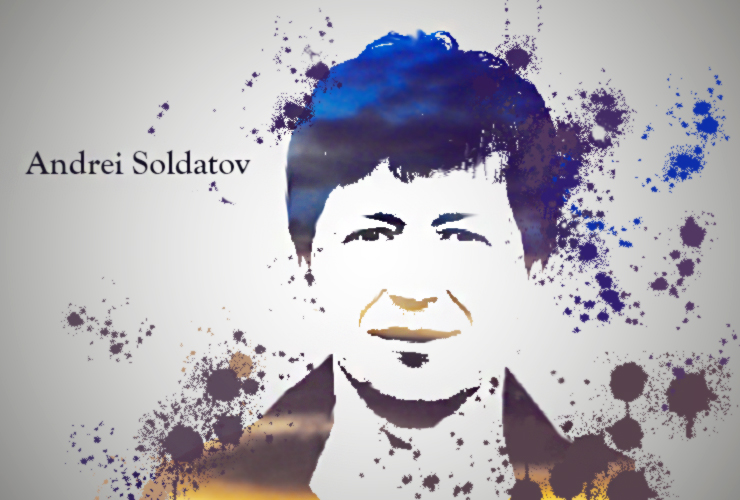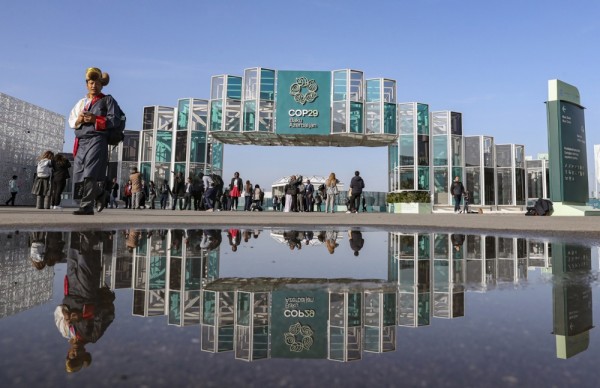Andrei Soldatov is a Russian investigative journalist and co-founder of the Russian news site Agentura.Ru, which is known for its coverage of terrorism and the activities of Russia’s intelligence agencies. In 2012, Soldatov launched the project “Russia’s Surveillance State”, which revealed government surveillance programmes in the run-up to the 2014 Winter Olympics in Sochi, Russia. Soldatov is the author of three books with fellow investigative journalist Irina Borogan: “New Patriot Games: How Secret Services Have Been Changing Their Skin, 1991-2004” (2005), “The New Nobility: The Restoration of Russia’s Security State and the Enduring Legacy of the KGB” (2010) and “The Red Web: The Struggle Between Russia’s Digital Dictators and the New Online Revolutionaries” (2015).
Soldatov spoke with IPI earlier this year by phone about the development of Russian trolls and propaganda, and why we should not write off the Internet as a powerful space for dissent.
IPI: What do you see as the most potent measures that the Russian government uses to silence dissident voices online?
Soldatov: There are a number of relevant factors. The Russian system of control is based more on intimidation than technology, but there is also a technology element. This ranges from the government’s power to shut down anything containing sensitive information or websites that provide a platform for public debate about sensitive issues. There is also the element of online surveillance, which allows the government to identify those who talk about sensitive issues online. And there are also the brutal offline methods to silence prominent voices. We’ve seen these things in rural Russia and we’ve seen these things in Moscow. A year ago, we witnessed a new development: people can now be sent to jail for expressing opinions critical of the government on social media.
IPI: Where do Internet trolls come into this picture?
Soldatov: Trolls are a so-called “informal” part of the system because most are usually not part of any government organisation, which in turn allows the government to deny any involvement or responsibility. The rolls are extremely aggressive and attack people for not holding particular political views, usually with reference to emotionally charged topics such as the Second World War or the Soviet past. They present themselves as the voice of Russian citizens with no ties to the government.
The first wave of trolls came in the middle of the 2000s, with the advent of LiveJournal, which was a very popular blogging platform and was the only place where journalists could talk about sensitive issues publicly. The trolls started to come when LiveJournal decided to allow anonymous comments.
IPI: How have the aims and strategies of these trolls changed over time?
Soldatov: In the early years, the trolls’ aim was not to change people’s minds, but to destroy one particular blog platform, LiveJournal. They posted disgusting things and false accusations in order to push people to leave the platform and deprive a particular journalist or blogger of his or her audience. This mission was not particularly successful and it ended around 2011/2012, just in time for the Moscow protests.
Prior to the protests, the platform for political debate in Russia had also shifted from LiveJournal to Facebook. This was a problem for the Kremlin during the protests as it had no means of using trolls against activists and journalists on Facebook, as Facebook would ban users for engaging in personal attacks. Of course, personal attacks still continued but overall the strategy shifted to sending thousands of complaints to Facebook in order to have the accounts of prominent bloggers and journalists closed, which actually happened in practice. Facebook appears to have found a solution to deal with these requests, but it’s still a problem.
IPI: There is obviously a great deal of concern in Europe and the United States about Russian propaganda, in particular during election seasons. Where does this phenomenon come from?
Soldatov: The roots of this meddling go back to the Ukraine crisis in 2014. One has to understand the central role played by the Russian-speaking social network VKontakte, which is popular in both Russia and Ukraine. VKontakte’s servers as in Russia and the Kremlin secured control of the platform after its founder, Pavel Durkov, was expelled from the company in the spring of 2014. Trolls used VKontakte to spread emotional propaganda in both countries that fed off of common imagery, especially the memory of fascism, a feeling of betrayal by the West after the fall of the Soviet Union and a fear, especially among the middle class, of more bloody revolutions.
For example, when the Maidan uprising in Kiev began the Kremlin’s propaganda sent a message to the effect of: “This revolution means blood on the streets. Do you want to support these crazy Bolsheviks? They will kill everybody and expel you from your land”. Or trolls propagated a fake story about a child crucified by Ukrainian fascists, which triggers historical memories from the Second World War, and the idea that the same thing might happen now. The combination of these sorts of messages and information was very successful.
Later, the trolls that undertook this work in Ukraine were redirected to a Western audience. Here, the challenge was both to find people who can help with the language and find the right message – obviously, the message of the West’s “betrayal” won’t work. Because of these challenges the trolling was actually not that successful in the beginning. Eventually, support came from far-right movements, who helped polish the language and set an agenda, namely, that the people have been “betrayed” by the establishment. This has been partly successful, but I would be cautious here, because the effectiveness of trolls in Russia and Ukraine is still way higher than it is in the West.
IPI: What does the future of the Russian media look like to you?
Soldatov: I’m trying to be optimistic, but unfortunately, there are things that are not very promising. What we need to remember is that governments like Russia’s or Turkey’s use policies in the West as a pretext to justify their own measures. There are a lot of calls now in the West to control content on social media due to concern over fake news and Russian disinformation, etc., but these calls provide an opportunity for the Kremlin to increase their grip on social media in Russia. The government in Russia can say: “Look, the West has finally joined us in recognising the problem with information on social media. We should all control content.”
IPI: Can we still look to the Internet as a haven for journalism and criticism in Russia?
Soldatov: I think the most important thing is that Russia – and probably other countries such as China and Turkey – is used to a hierarchical world. The Internet presents a formidable change as it’s all about horizontal ties. The idea that people can come together without any authorisation is so powerful.
What was really interesting was that when we analysed the big protests in Moscow, we noticed that many of the main leaders of these movements were in jail or outside the country. The biggest actions were organised thanks to Facebook and launched by ordinary people. The fact that we are able to organise ourselves in this way is amazing.
It’s important to reflect on that because nowadays there is a lot of negative commentary about the Internet, that it leads to fragmented societies, undermines the mainstream media, etc. But we need to remember that it provides an exceptional platform for people to exchange ideas, to have a public debate when all other places are absolutely destroyed, and to organise themselves. I think we still do not yet understand how powerful this can be.



